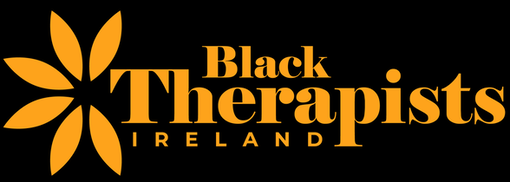|
Originally published in the Irish Medical Times - 10th March 2022. It is vitally important to provide a therapist to the black community who has the same culture, heritage – and yes, skin colour – in order to allow patients to properly access mental health services says psychotherapist Ejiro Ogbevoen Ireland today has become a very diverse community, highlighting the many colourful differences in culture, traditions, beliefs, and general way of being in the world. At so many levels, we believe in the strength of honouring these differences and building a society that includes everyone.
Harnessing our intrinsic need for survival, which makes us gravitate to that which is familiar, can be a significant key to building a strong society of inclusion. When people can identify themselves in our institutions, they are more likely to engage and support themselves for the collective good. Understanding difference is one step towards inclusion; representation however, is the next step. “People of colour experience mental health challenges differently. These experiences are often situated within and tinged by racist connotations. Given these negative racial ascription, people of colour are often misdiagnosed, treated differently within mental health services and consistently experience poorer satisfaction and less productive outcomes.”* As a counselling psychotherapist who completed my degree in 2013, I never saw myself as a black therapist; I was simply a therapist working in the community to support anyone and everyone who needed my expertise. In 2020, after the death of George Floyd, and the global outcry by the black community, Ireland experienced its share of distress, and many in the community sought psychological support. With counselling enquiries coming my way, I became curious about the invisibility of black psychotherapists in Ireland. Apart from a student, I knew no other psychotherapist of colour. So, I decided to do something about this. I brought black therapists together under one roof to make it easy for anyone to access this particular type of support, if this was what they needed. I created a directory in October 2020, called blacktherapistsireland.ie. Finding other therapists continues to be a slow and gradual process. So far, we have a total of eleven practicing psychotherapists on this platform, actively serving the community at large – with particular focus on the needs of the black Irish community. All the therapists with Black Therapists Ireland are trained, accredited or pre-accredited with reputable professional bodies, with many years of experience and specialised training working in this field. The Irish Association of Counselling & Psychotherapy (IACP) has shown strong support in promoting blacktherapistsireland.ie, and recognising the need for this very vital resource. We have collaborated in events that has brought awareness and increased our visibility in the community. In my quest to reach the wider healthcare community, I came into contact with a Dublin-based GP, Dr Sinéad Howley, who said “I think it is great to see a pool of therapists that we can recommend to our patients that are reflective of their own background and culture. “We know the benefits of women-led services for women, and hopefully this service will achieve similar benefits by offering tailored services. As a GP, sometimes there can be cultural and language barriers in our dealings with patients, and it is wonderful to be able to have to hand a pool of therapists that can be sign-posted for our patients.” There are significant challenges in the black community when it comes to engaging with mental health services. Stigma, language barriers, beliefs based on misinformation about mental health, and a real fear of mental illness that keep people from engaging in mental health conversations in the hope that avoiding it all together will keep the illnesses at bay, and financial limitations discourage the black community from seeking help. When it comes to offering relevant and appropriate support, we cannot over-emphasise the importance of shared experiences, beliefs, traditions, culture and heritage. Most clients come to us because they are concerned about being accepted in the predominantly white mental health services. The fear of not being seen, that their beliefs may be looked upon with disregard. Some feel that a Caucasian therapist may not be able to hold the space for them with regards to their way of being, fashioned by traditions of which the therapist has no knowledge or experience. Most importantly though, there is the real fear that there is no safe space for them to share the experiences of discrimination faced by people of colour. Sharing such difficulties with people who do not understand may create situations that deepen mistrust and increase disengagement. Since our establishment, there has been a consistent increase in the number of people looking for therapy from Black Therapists Ireland. This service has not been restricted to black people – many who feel that they would be better understood in this space have sought out our services. At the beginning of 2020, my private practice boasted zero per cent people of colour. Today, over fifty per cent of my clients are people of colour who want my services – specifically because I am black. There is value in raising awareness, especially where we are today in the world with the global pandemic and the significant impact on our mental health. It is imperative to bring this resource to the wider community, to every healthcare professional, all organisations and institutions, with the hope of reaching people who otherwise might not engage with any mental health service. * ‘The International Hand Book Of Black Community Mental Health’, Vernon, 2011.
1 Comment
|

 RSS Feed
RSS Feed